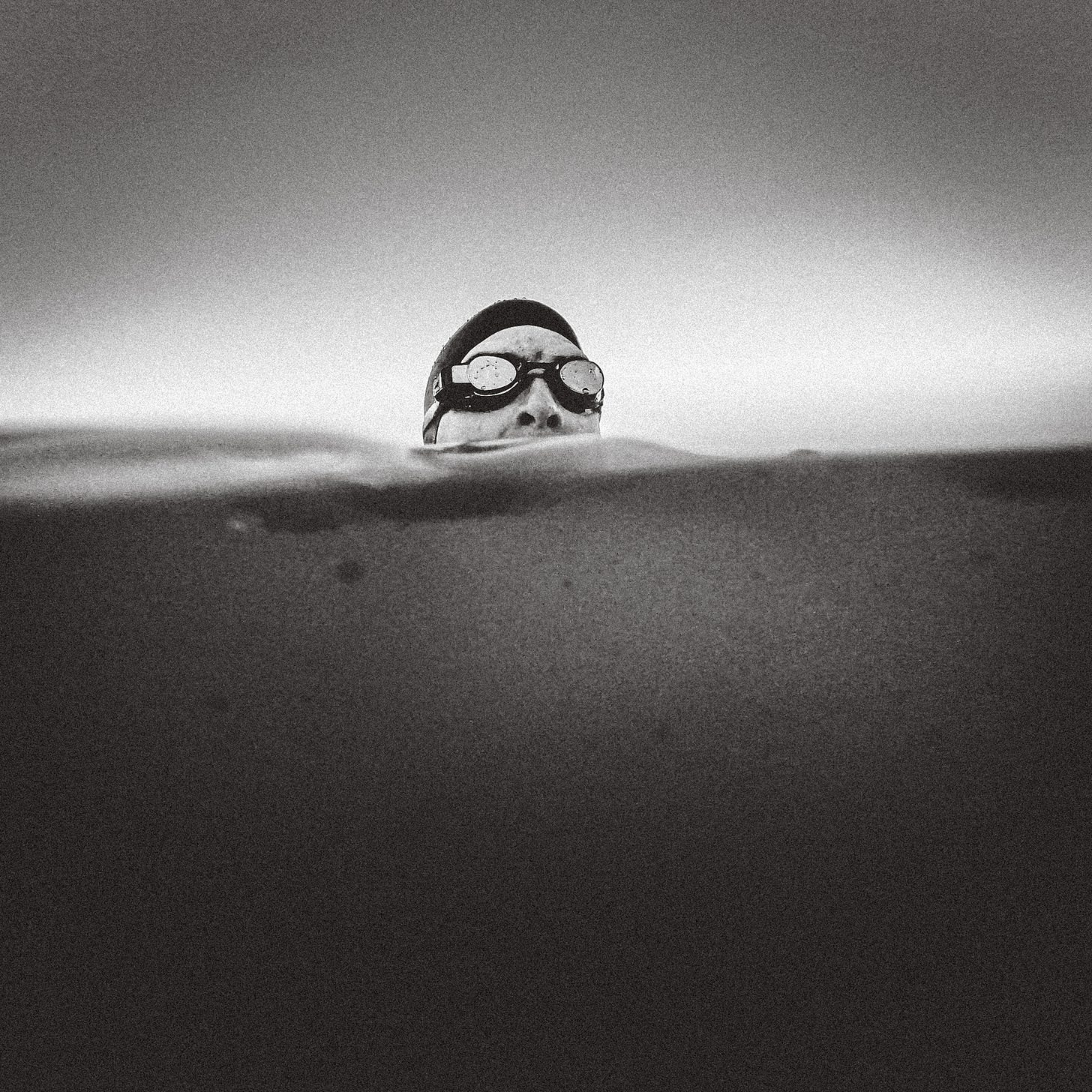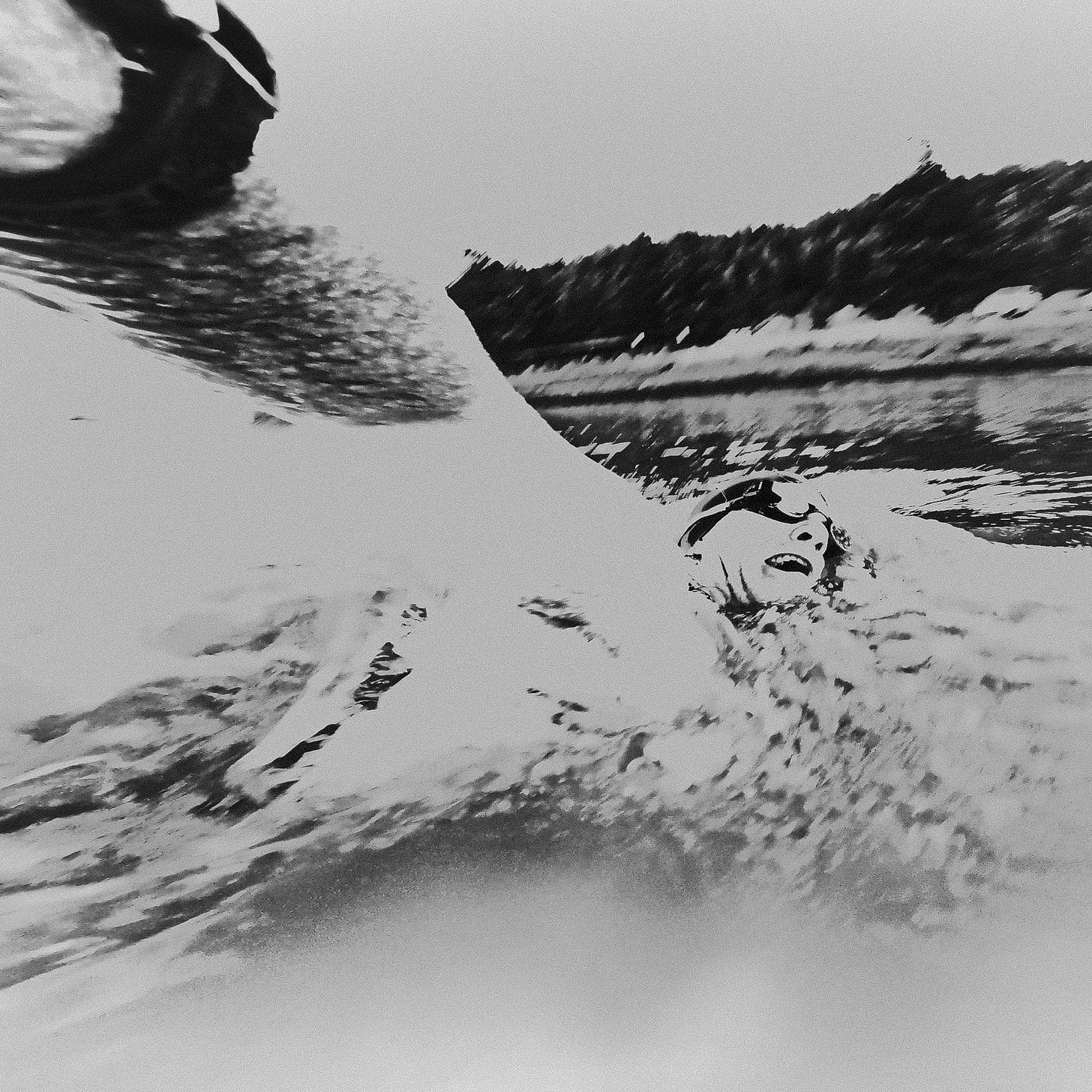From Pixels to Purpose: Understanding the Depth of Our Experiences
I’ve been thinking a lot about what moments mean versus what they look like.
Professionally, I use words, photos, and videos to help my clients see beyond what a moment looks like. I’ve even trademarked the phrase, “There’s more to a moment than meets the eye.”
But I’ve been thinking a lot about how actually to do that. How do I practice what I preach regarding my own moments?
How can I make it easy for others to capture their moments (whether they are clients or not)?
How can I model that message?
Setting the Stage
I went out with a friend, Hawaii Ironman racer Kris Estes, to do another run-through of the Mountain Man Triathlon Olympic Distance race on August 11, 2024. I’ve known Kris for decades, and he’s one of those lifelong athletes you want to be when you grow up. Kris agreed to come along and keep me company while I rehearsed the three legs of the race: a 1,500K swim, a 40K bike, and a 10K run.
While I have raced three Ironmans (when I say race, I mean finish) and dozens of triathlons of various lengths, it’s been 15+ years. I bike and lift consistently. I run when I’m not injured, but I haven’t been in the pool since I was racing.
I’m not afraid of the distances, so today's goal was to get a feel for the course and to bring the sport back to my heart.
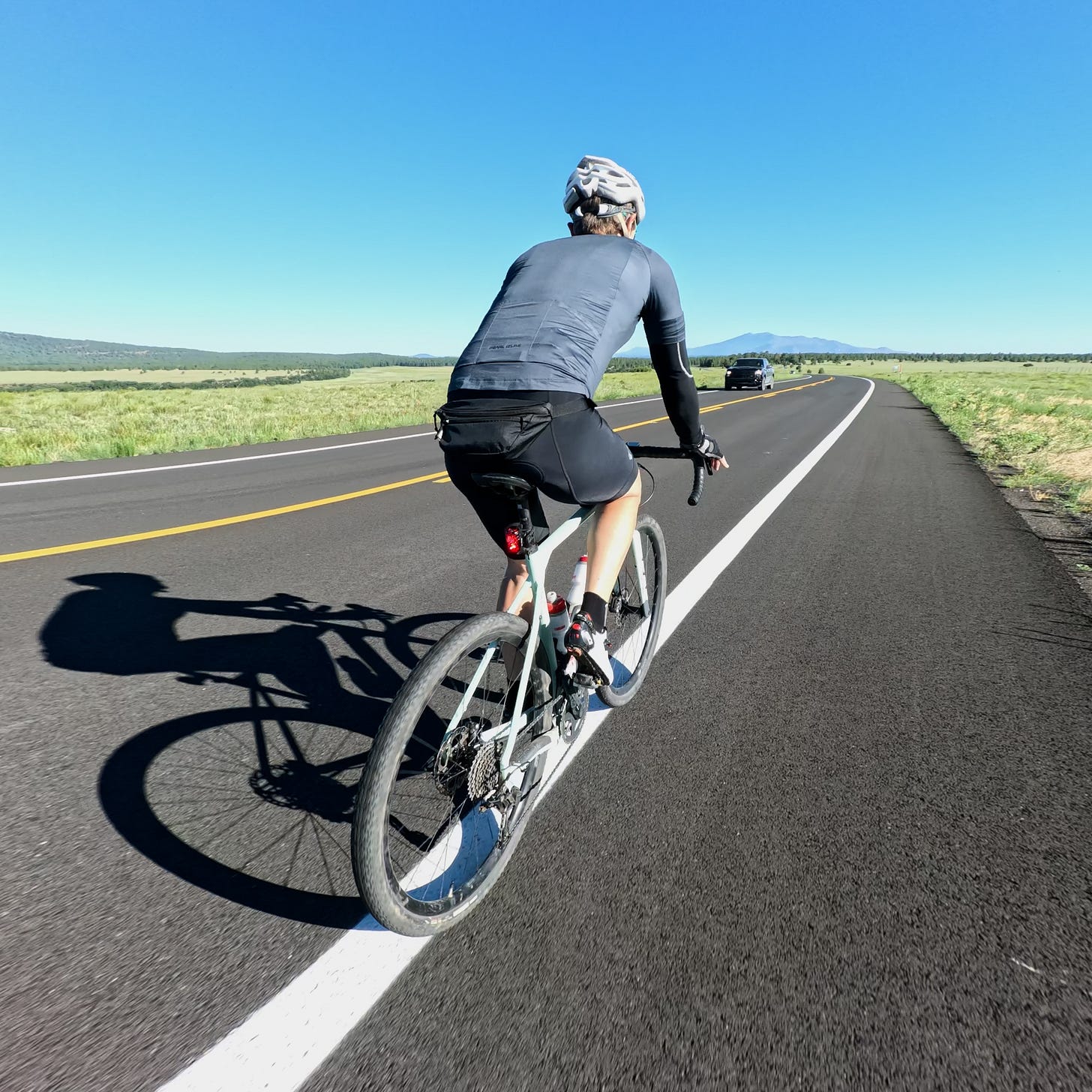
Meaning goes beyond the visuals.
If you look at the photos from Saturday’s outing, they tell a story about two friends swimming, biking, and running. Looking at these photos years from now will remind me of today.
But what is important about today, and what did it mean?
What is it about this moment that I want to remember?
What nuanced details will I surely forget but would enrich the memory?
Why did I take the time to carry my camera and expend the effort to capture this moment?
What do I hope I don’t forget about this moment?

What Photos Can’t Capture About This Moment
There are so many details that photos can’t capture.
This comes from a school-trained, 15-year newspaper photojournalist and cinematographer. Even if I’d hired a film crew and a handful of photographers, there would be missed details.
For one thing, images can’t capture what we talked about.
For the 90-minute ride, Kris and I discussed everything from our kids to our goals. We talked podcasts with Rich Roll and Andrew Huberman on fasting, exercise, protein, and health. We rode hard and fast. We stopped to enjoy the route. We cruised. We talked about gravel bikes and adventure routes.
None of these photos can tell that it was this ride that I committed to getting a gravel bike so I could start bike camping. I’ve thought about it many times, but this will be a watershed moment looking back ten years from now.
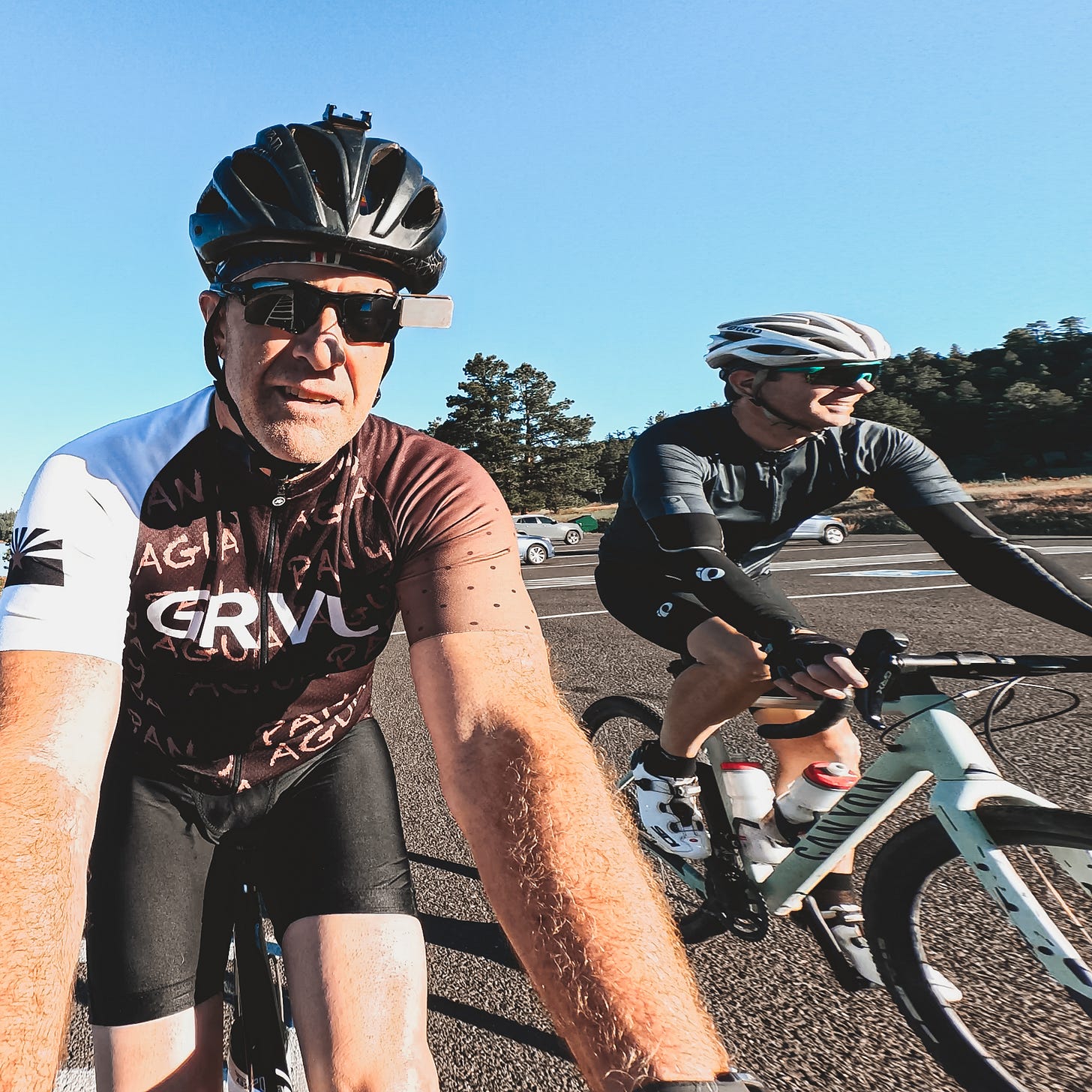
Photos Can’t Capture the "Why Now?"
Why did I decide to pick up triathlon again?
I’m staring 60 in the face, and I refuse to go quietly into the night. That’s probably the biggest reason. I’ve always loved the Triathlon sport. Rain or shine, injured or not, there is always some aspect of the sport to work on.
Photos today can’t capture the coordination that brought Kris and me to the Upper Lake Mary beach. Kris avoided the $10 parking pass because he recently learned his National Park Pass applied.
Photos can’t explain why Kris isn’t swimming today. He tumbled on a trail run earlier in the week, and the wetsuit would aggravate the injury.
They don’t show my rehab work this week or my optimism that I can finish the run today despite a running injury in my left calf.
I hope I don’t forget what it’s felt like to get back into triathlon – to give my training meaning. Day after day, I exercise, but it’s been without benchmarks. I love the work but miss the reward of the race.
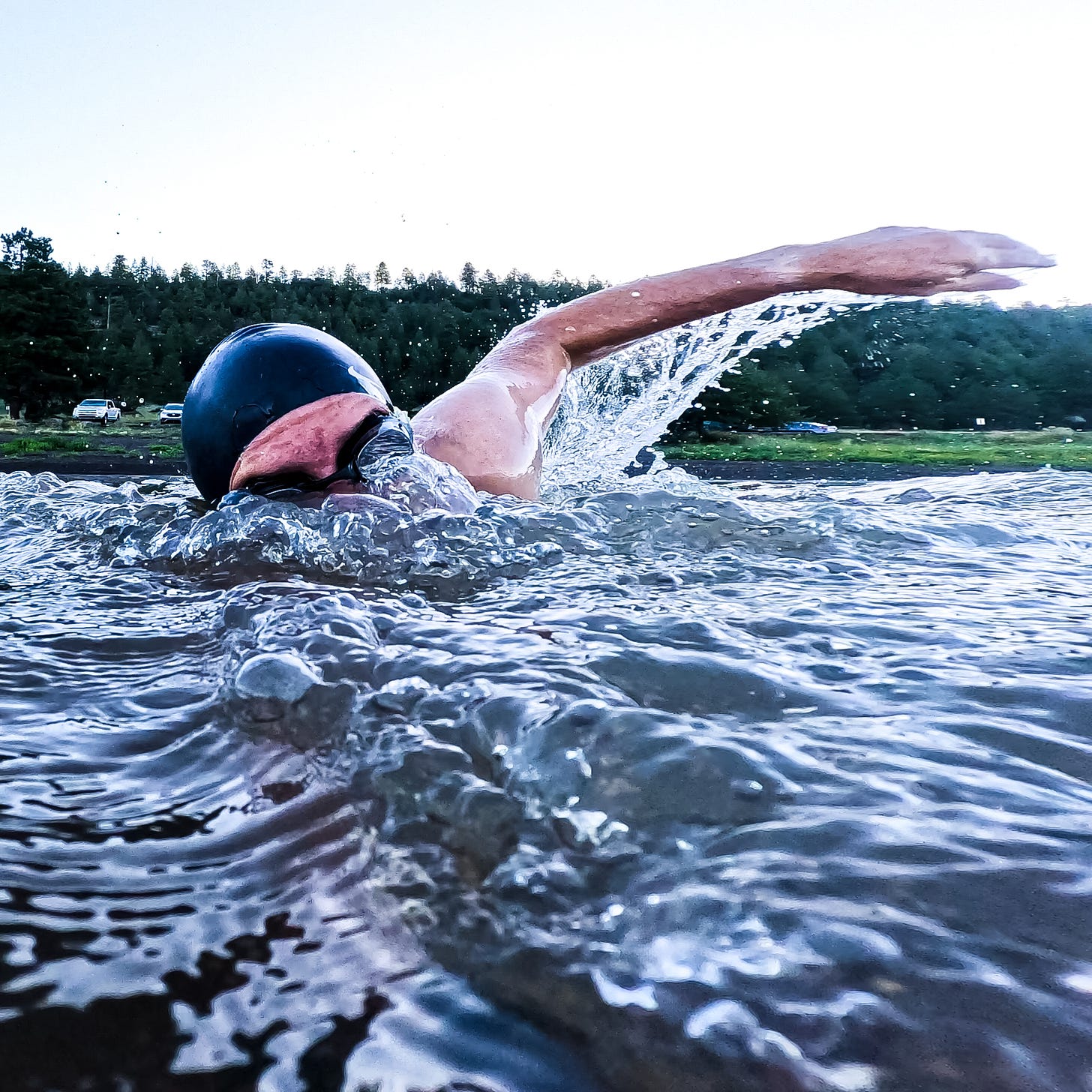
A Game of Charades
Every day, we take out our cameras and our phones, snap a few photos, and move on.
Memory after memory piles up on our camera rolls – our brains content that we’ve captured the moment by taking photos, and that’s all we need to do. We barely stop to ponder the moment because we’re on to the next.
Sure, someday we’ll go back and sort and organize them, but at least they’re captured, so we praise ourselves. We might even take the time to post them on social media with a cute caption. Now we’re golden—moment captured!
But we haven’t learned anything about what this moment is trying to tell us.
All the moment can do is stare back at us like a game of charades with its visual prompts, hoping we’ll remember more than what it can say to us in the future.
Photos visually represent a moment and don’t always represent the best “1,000 words.”
The only “meaning” comes from the viewer. No matter what anyone tries to convince you. A photo can only physically say what’s captured in the one-dimensional array of pixels.
A Good Therapy Session
It wasn’t until I sat down with these photos that I understood what this moment meant. I sat back and answered questions that any good therapist would ask.
Initial questions: “What brought you here today?” or “What did you expect to get out of this?”
Understanding the problem: “What’s the biggest problem you’ve had to overcome?” or “How does this moment make you feel?”
Support systems: “How do you feel about your current training?” or “Do you have supportive people?”
Goals: “What positive changes would you like to see?” or “What would it take to feel happier?”
Self-awareness: “What are you feeling?” or “What are you thinking?”
Perspective: “What evidence supports this thought?” or “How would you feel if this alternate thought were true?”
Strengths: “What are some of your strengths?” or “What personal strengths do you have that would help you successfully change?”
Progress: “On a ten-point scale, how did you think today was going to turn out versus how it did?” or “What can I learn from today to help me on race day?”
We Don’t Know What We Don’t Take Time to Think About and Learn
I’ll never argue that photos aren’t important.
Photography has been my life’s passion for the past 35 years.
I am now arguing that we should take fewer photos and spend more time reflecting on the moment's meaning.
AND WRITE IT DOWN.
Don’t reflect on the photos by writing elaborate, existential comments for Facebook or Instagram. This has to be for you and not the world. It has to be for your family and your legacy, not for likes and comments.
This has to be about what the moment taught you.
Reflect on the moment. Ask yourself hard questions. Ask yourself fun questions. Be curious. What went right? What went wrong? Take the time to go beyond what the moment looked like. Sit with what it meant.
Listen carefully for the answers.
Answers aren’t always in black and white.
Put down the camera, pick up a pen, and capture the details that matter.
You might miss a few photographs, but imagine what you’ll get in exchange.


